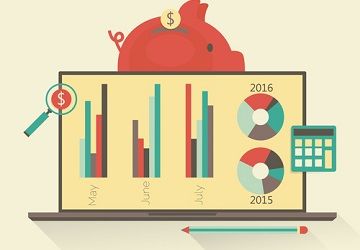- Best Practices New Normal
- Digital Dentistry
- Data Security
- Implants
- Catapult Education
- COVID-19
- Digital Imaging
- Laser Dentistry
- Restorative Dentistry
- Cosmetic Dentistry
- Periodontics
- Oral Care
- Evaluating Dental Materials
- Cement and Adhesives
- Equipment & Supplies
- Ergonomics
- Products
- Dentures
- Infection Control
- Orthodontics
- Technology
- Techniques
- Materials
- Emerging Research
- Pediatric Dentistry
- Endodontics
- Oral-Systemic Health
How Dentists' Income Has Fared Since the Recession
The American Dental Association Health Policy Institute report highlights stable, not growing, dentist earnings in 2015.

The American Dental Association Health Policy Institute has released the latest research brief examining dentist earnings for the year 2015, and unfortunately, the news could be better. According to the Institute, revenue collected by dentists has not yet recovered from the recession that began a full six years ago.
In 2015, general dental practitioner net earnings averaged $179,960. Those owning their own practices averaged $195,200 while non-owners netted approximately $132,370. Dental specialists brought home more, averaging around $320,460.
However, when adjusted for inflation, the average net income for all general dental practitioners has decreased substantially since the peak value was recorded in 2005. That year, the average net income was $219,638.
According to the brief, dental earnings have taken a hit as a result of several factors. There has been a stagnant demand for dental care due to falling or stagnant wages in almost all job fields across the country after the recession. Private dental insurance plans have lowered payment rates to dentists. Also, a flood of new dentists into the market has increased supply ahead of demand, resulting in lower wages.
The report also investigated workload among dentists. More dentists reported being busier in 2015 than in previous years. Patient volume has also increased in dental practices across the country. An analysis of this data included in the report indicated that this could be the beginning of a turn-around for both busyness and wages in the dental industry. At the very minimum, this could be an indication that levels of work in the dental industry could already be at the lowest levels they might reach.
The research also pointed out there is an expected increase in the number of practicing dentists that should occur over the next few years. This, coupled with other data regarding current dental care utilization trends, indicates that dental spending nationwide will not return to the historically high, pre-Recession levels dentists once enjoyed.
As the ADA looks forward, there is the recognition that there are many factors at play in the current healthcare industry in the country. There is still much uncertainty regarding the future of our healthcare system and its effect on the economy. The ADA plans to continue to study the dental economy in the coming years to better understand whether it can and will return to pre-Recession levels, or whether this is, in fact, the new normal.
